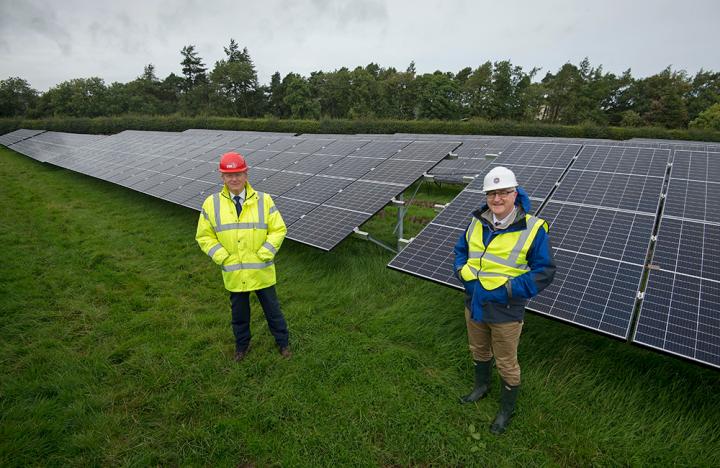Our Carbon Emissions
The University recognises the climate crisis is one of the most pressing issues facing humanity. Our commitment to become carbon neutral by 2040 aims to tackle this crisis head on.

The University’s Climate Change Strategy, sets out the significant steps it will take to achieve its carbon neutral commitment. This includes adopting a whole institution approach through its research, teaching and operations.
By 2025, the University had committed to return carbon emissions to 2007-08 baseline year levels and reduce emissions of carbon per £ million turnover by 50 per cent from baseline year levels. Both of these objectives have been achieved.
To date, the University has reduced its carbon emissions by 15 per cent since 2007-08. Carbon emissions for 2019-20 were 73,347 tonnes CO₂e, compared to 86,707 tonnes CO₂e in 2007-08. Relative emissions of carbon per £ million turnover were 65.5 for 2019-20, compared to 156 in the baseline year.
Carbon emissions
Scope meanings
| - | Scope 1 | Scope 2 | Scope 3 |
|---|---|---|---|
| Description | Direct emissions from activities owned or controlled by the University | Indirect emissions from electricity consumed by the University that we do not own or control | Other indirect emissions that occur upstream and downstream, associated with the University’s activities |
| Included in target |
|
|
|
| Measured but not used in target setting |
|
Carbon reduction measures
Carbon emissions from electricity have decreased over this period due to continued investment in low carbon technologies and energy efficiency measures through the Sustainable Campus Fund and funding support from the Scottish Funding Council.
A total of £7.4 million has been invested since 2016-17 in projects, delivering savings of £1 million and estimated annual saving of over 3,000 tonnes CO₂e. In 2019-20, a total of 44 carbon and energy efficiency projects have been completed, generating £333,000 in cost savings and a reduction of 1,091 tonnes CO₂e. The University has also benefitted from the decarbonisation of the national electricity grid.
To achieve further reductions in carbon emission, the University has been developing a renewed Energy Masterplan, providing a long-term strategy to eliminate energy waste, minimise energy demand, optimise energy efficiency and enable the transition to low carbon energy sources. The University has also been assessing low carbon heat strategies, to support future investment in new heat supply technologies that will reduce carbon emissions from its heating.
A Travel and Aviation Working Group was formed by the University in 2019, with the aim of providing recommendations to reduce carbon emissions from Business Travel. A consultation with staff on climate conscious travel was completed in 2020. Following the consultation, recommendations to improve policy and practice were developed by the Working Group and approved by the University Executive in June 2020. These recommendations are now being implemented by the Department of Social Responsibility and Sustainability, in collaboration with the wider University.
Carbon emissions for 2019-20, included a fall in carbon emissions from Business Travel against the previous year. This was mainly due to the impact of travel restrictions in response to the Covid-19 global health pandemic.
Business travel
The year in the graph represents the end of the academic year (for example, 2020 is for 2019-20).
City partnership
The Edinburgh Climate Commission was established in February 2020, bringing together key organisations and actors from across the city and from the private, public and third sectors. The Commission aims to accelerate action and impact on climate change in the city, and provides independent, expert and authoritative advice to enable and support the best choices being made for Edinburgh. It is co-sponsored by the ECCI at the University of Edinburgh and City of Edinburgh Council.
Case studies
University becomes test-bed for low carbon innovation in construction
University unveils new solar farm
Sustainable Campus Fund case studies

